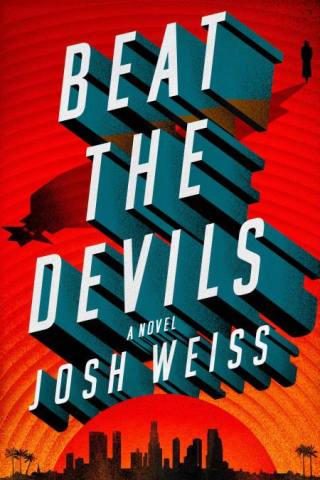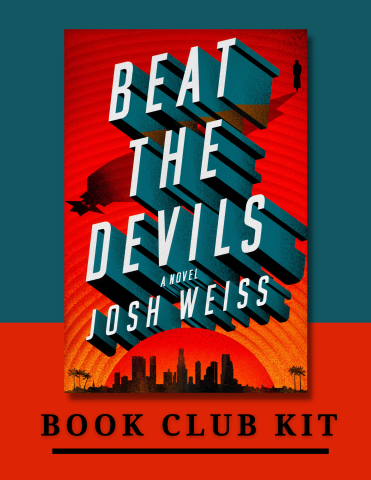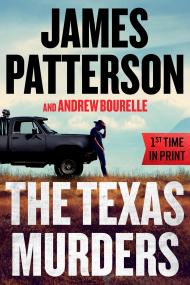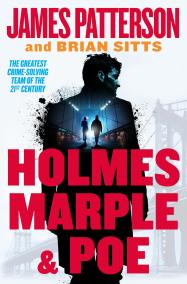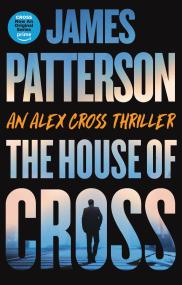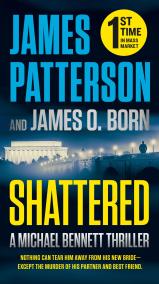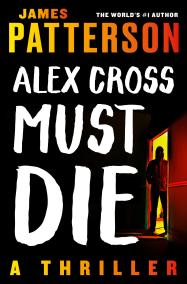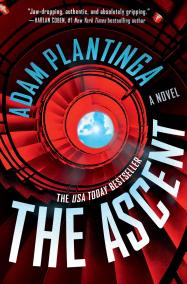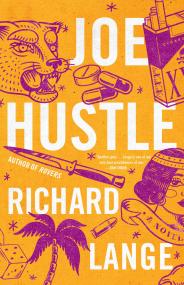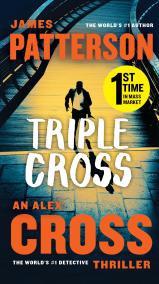CHAPTER 1
In the beginning, there was the shovel and then there was the darkness.
That’s where the world ended for Morris Baker, but it’s also where it began. It was the impenetrable darkness that roused him from a paralyzing abyss of memory. Well, the darkness, and the ringing of that damn telephone.
It was Tuesday. He knew it was Tuesday because an empty bottle of peach schnapps lay on his nightstand. He always drank peach schnapps on Monday nights, just like his father before him . . . except that his father hadn’t been a vicious drinker.
Who was he kidding? Morris Baker drank peach schnapps every night and most of the day, for that matter.
He knew he had woken up on a Tuesday because the government-issued Norman Rockwell calendar sticking to his grease-stained refrigerator told him so. The picture for the month of July consisted of two “proud” Americans—a husband and wife—in conservative swimsuits lounging on a tropical beach, clinking their martini glasses together. In the distance, a sad-looking couple dressed in drab, gray uniforms were bound in chains that bore the hammer and sickle insignia of the Soviet Union. Set against the cloudless blue sky above the two couples in red, white, and blue lettering were the words the freedoms of capitalism! traced in a bold black outline.
Baker saw two identical versions of the calendar, thanks to the schnapps, but he was just able to make out that it was the first day of July and that . . . Shit!
The phone was still ringing. He rolled over and stretched his arm off the bed, blindly feeling around for the receiver as the naked woman lying next to him stirred faintly.
Baker fumbled with dirty socks, a crumpled chocolate bar wrapper, and a neglected guide called How to Recognize a Communist in Ten Easy Steps, published by the government’s official newspaper: Counterattack. Since David Schine was a Jew, his once-prominent Definition of Communism had been rendered “incomplete, inaccurate, and in dire need of updating for the safety of the nation.” Finally, Baker found the phone with his callused fingers.
“Yeah?” he grunted. His mouth was dry and sour from the schnapps, which also turned his head into a pounding drum of bad life decisions that paraded by with each beat. He looked up and squinted, sucking in a hiss of discomfort. Daylight exceeding the recommended dose for his hangover blasted his constricted pupils.
“Baker, hope I didn’t wake you,” said his partner, Brogan Connolly, from the other end. He didn’t sound very apologetic.
“No, I was having an early brunch. Lucille Ball is here. I really am preoccupied at the moment. Please do call later.” He’d lived in America for over ten years but still couldn’t shake his Czechoslovakian accent, which turned words like was and the into vas and zee.
“Not interested in your lip, Baker,” replied Connolly. “I need you in Echo Park, pronto. I can hear that slur in your voice, by the way. Put the damn schnapps bottle down and get over here.”
“Vat—what—is it that couldn’t wait for me to actually be on duty, Connolly?”
“Two stiffs, double homicide.”
“So? Vee”—we—“get homicides all the time. It’s our department for Christ’s sake.”
“First off, his name is Jesus. Secondly, don’t take the Lord’s name in vain or I’ll be forced to teach you a lesson with the Dublin Twins. And yeah, we get murders all the time, but it’s not every day that you come across a journalist for a big-time network and a washed-up motion picture director. Can’t make heads or tails of it. Just thought you’d wanna know.”
Suddenly Baker was no longer so focused on his schnapps-induced headache. The woman next to him turned over with a muffled grunt. The covers slipped down, revealing her pale breasts. For a moment, Baker considered hanging up the phone.
“You still there, Baker?”
“Yes, yes. Keep your head on.” The idiom tasted foreign on his lips. “What’s the address?”
“Nine Eighty-Four Altivo Way. Right off Echo Park Avenue.”
“Okay. Anything else?”
“Just get your chopped-liver-loving ass down here, all right?” Connolly abruptly hung up.
“Connolly, you Irish bastard,” Baker groaned, placing the receiver back into its cradle on the floor and rolling onto his back.
“What is it?” mumbled the woman.
“Work call,” Baker said. “Go back to sleep, Liz.”
She was snoring again in seconds. The shafts of light forcing their way through the uneven blinds were casting early-morning shadows that reminded Baker of a barbed-wire lattice. The errant thought invited an intense wave of nausea into his gut. He sat up quickly, not ready to start the day by cleaning up a puddle of regurgitated peach schnapps and pinto beans. He sat on the edge of the bed, mentally coaxing his stomach to relax and continue its regularly scheduled programming.
“Well, as long as I’m up,” he said, stretching and opening his mouth in a satisfying yawn. Baker stood and started to get dressed. Before heading out, he grabbed his gun, which sat atop a stack of unopened letters from a West German court. The words dringend! urgent! were stamped across the envelopes, but Baker, who had received the messages over a period of several weeks between May and June, was in no hurry to open them.
CHAPTER 2
The California sun seemed to be free of its cage as he made the drive out to Echo Park from his studio apartment in the heart of China- town. Nobody ever seemed to bother anybody in Chinatown. Well, that wasn’t entirely true. Good, “patriotic” Americans hated the chinks just as much as they hated the kikes, and there were drunken raids on Chinese shopfronts from time to time. These domestic pogroms often resulted in someone losing more than just their livelihood.
Still, living among the Coolies could made a Yid somewhat in- visible. And besides, living alongside the Chinamen just felt right; there was an unspoken form of kinship with the Jews, was there not? They were, after all, two peoples who, at points throughout their histories, had amounted to nothing more than expendable labor forces and were, at present, now despised for their shared association with Communism.
Truthfully, Morris Baker didn’t fit the stereotypical Jewish look, no matter how many jokes Connolly made to the contrary. His nose was thin, but it wasn’t a crooked beak like so many of his kinsmen were said to possess. His eyes were a murky dark brown and (not surprisingly) noticeably sunken since the end of the war. In fact, the only feature that hinted at his heritage was a head of curly brown hair so dark, it looked black in all but the most selective of lights.
The sky was nothing like the Rockwell illustration on Baker’s refrigerator. It was a deep, unpleasant shade of orange as the sun mated with the Los Angeles smog. The intense morning rays caused amorphous shadows among the forest of palm trees in Echo Park. At this hour, they looked more like deformed monsters than the botanical landmarks of warm weather. Despite the fact that it wasn’t even eight o’clock yet, Baker’s white shirt was already soaked with a healthy layer of sweat. He cursed himself for stupidly forgetting to put on an under-shirt and neglecting to shave the shallow stubble creeping up his neck. At least his hangover was abating . . . sort of.
Looking out the open window of his pale-green Continental Mark II—whose noisy Y-block V-8 engine never shut the hell up—Baker saw a cluster of lotus plants shooting out of the Echo Park lake. The mottled growths resembled the periscopes of a bright-green submarine armada. The gibberish of Huey “Piano” Smith’s “Don’t You Just Know It” was coming out of the radio. Just like the country he now lived in, the lyrics made no sense to Baker.
“Aw yeaaah, baby!” said the disc jockey once the song had ended, letting out a wolfish howl. His voice sounded as though he had the unusual habit of gargling gravel most mornings. “Don’t ya just love that one, folks? Even the Reds can’t resist a tune that good! This is KPXM Los Angeles, where we’re playin’ all the jiviest jams of yesterday, today, and tomorrow, baby! Aww yeaahhh . . . !”
A new song began to play, but barely made it to the chorus before it was replaced by a garbled Shakespeare reading somewhere out of range. “The fault . . . Brutus . . . not in our stars . . . in ourselves . . . resist . . .”
“Piece of junk,” said Baker, turning off the radio with a flick of the wrist.
Soon, the erstwhile Echo Park branch of the LA Public Library system came into view. The building resembled a multilayered cake, assembled from an appealing combination of white and orange bricks. Big black letters sat atop the entrance like blight on a potato farm: house un-american activities committee offices: los angeles division. Cleared of its books and shelves, the library was now a place where suspected Communists and deviants were taken to be processed, interrogated, and, in some cases, unofficially disposed of. People could still make it out alive, of course, but their psyches and fingernails were never the same.
The deafening roar of a supersonic jet overhead brought Baker back to his senses. For a moment, the thunderclap blurred out the Continental’s overworked engine as the jet hit Mach 1. Baker snapped his head up just in time to see a white cloud bloom from the tail end of the aircraft as it sped off into the morning sky. Its scream became more and more muted by the second. For ten years, man had been able to break the sound barrier, and for ten years, he wouldn’t let anyone on the ground forget it.
“Oy, we get it already,” Baker shouted at the jet, his brain threatening to roll over like a dying dog.
It was only a five-minute drive from his apartment on North Hill Street to the former library and then another nine to the address Connolly had provided via Glendale Boulevard, which took him through Effie Street and then to Echo Park Avenue.
Altivo Way was a small street right off the avenue, boxed off by palm trees and bushes, and lined with bungalows. It gave the impression of an exclusive, colonized jungle that was both comfortable and expensive. The city proper was slightly visible between all the scrub, and Baker wryly warned himself to look out for hungry tigers waiting to pounce from the trees.
The house at 984 was curious in that it resembled a ranch. Upon further inspection, however, Baker could make out several lower levels that reminded him of the wooden puzzle boxes sold in the various shops and stalls across Chinatown.
He pulled up next to the house, noting that several sleek black-and-white Chevy Delrays were already parked outside. The circular crest on their bodies read city of los angeles, founded 1891 and featured the state and American flags. A uniformed officer (a newbie named Thomas or Travis, Baker couldn’t recall) was leaning against one of the squad cars, keeping an eye out for any nosy neighbors trying to catch a morbid glimpse of the crime scene. For added measure, a spiderweb of yellow police tape crisscrossed the entire lawn, and for the second time that morning Baker thought of barbed wire, a whole fence of the stuff running off into the horizon in either direction. Once again, he repressed the image.
Some Altivo Way residents, still in fluffy bathrobes and satin pajamas, were standing curiously on their lawns and driveways, craning their necks to see what all the fuss was about. Thomas/Travis acknowledged Baker in the way that nearly everyone on the force acknowledged him: by spitting on the ground. He was used to it by now. Any qualms he may have had about forgetting the little shit’s name were forgotten.
“Top of the morning to you as well,” said Baker sardonically. Strolling up the stone walkway to the door of handsomely carved driftwood, Baker noted the gold calligraphed H on the house’s mailbox. The brass doorknob was gleaming with indelicate smudges, no doubt a present from the uniformed officers who first arrived on the scene. Their hastiness and stupidity had probably destroyed any evidence of fingerprints. Baker turned the warm knob and walked inside.
The slight Irish lilt of Brogan Connolly boomed out of the darkness: “About time, you Hebe son of a bitch! Now we can finally get started!”

